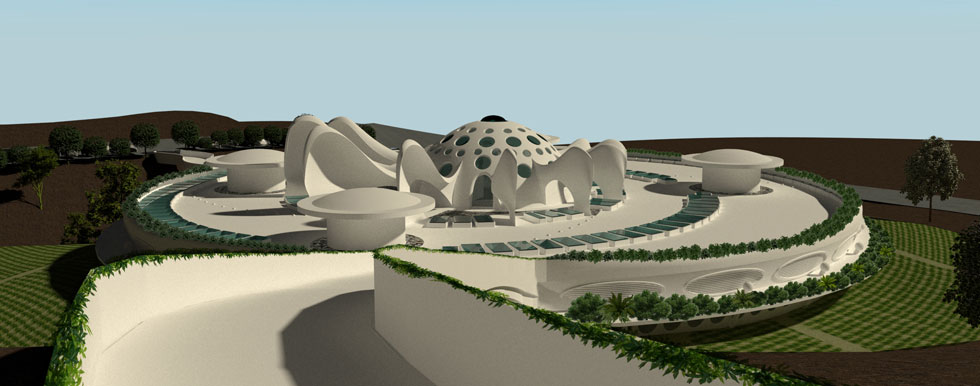Article: World’s First True Zero Office Building Engineered by Zenith Engineers
Meeting to introduce proposed Mount Shasta building

International Architect and part-time Mount Shasta resident Dr. Eugene Tssui will debut his proposal for a revolutionary underground, commercial office building at an event planned in collaboration with the Ecology Center on Aug. 8 at the Mt. Shasta City Park.
The proposed building contains no mechanical/electrical heating, ventilation and air conditioning systems, and is made of wood and gigacrete (a fireproof, waterproof, mold and mildew-proof, disaster-proof material).
To be located on Spring Hill Drive once approved, this building redefines architecture as we know it and may be the first true zero footprint commercial building in the world. The project is currently in its construction drawing and structural engineering phase preparing for submittal to the City of Mount Shasta’s Planning Department; soils engineering has gone out to bid. The evening was an opportunity for members of the public to learn more prior to its later city review.
The building’s ground floor level is 40 feet below the existing surface of the ground and features a spiraling garden ramp that creates an interior air cleaning, stress and sickness reducing, creativity boosting environment using plants and flowers.
The proposed building features a variety of other innovative features such as a rain and dew catchment system. Roof water-catch troughs have as-needed drainage controls to use rain water that has been cleaned and filtered through the use of “Lifestraw” passive filtering devices, so all caught rain water is drinkable and usable for sinks and washing.
A key feature is its central, spiral ramp, displaying various native species of plants and flowers. The building will measurably achieve many benefits projected to include:
- An over 15% increase in productivity
- 25% decrease in illnesses
- A space more attractive to workers
- Plants which clean the air, and thus reduce CO2 by 25%
- Reduced noise levels
- And – a greater than 15% increase in creativity
Share this Post

